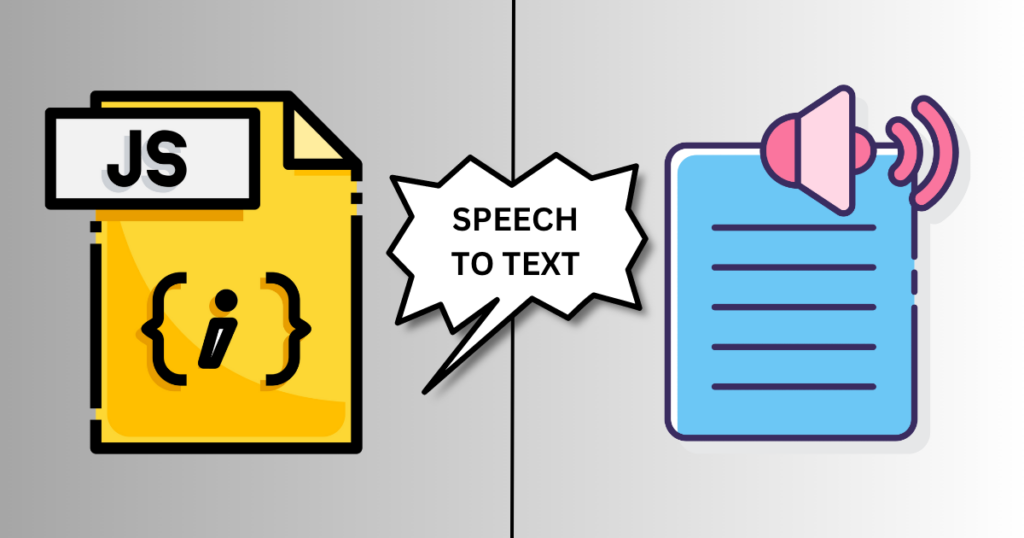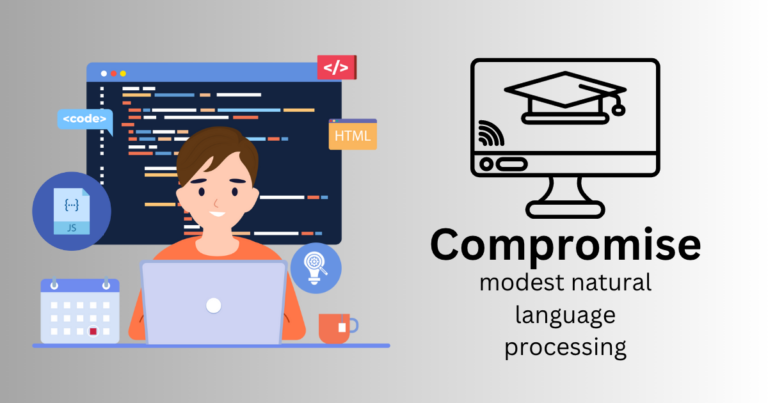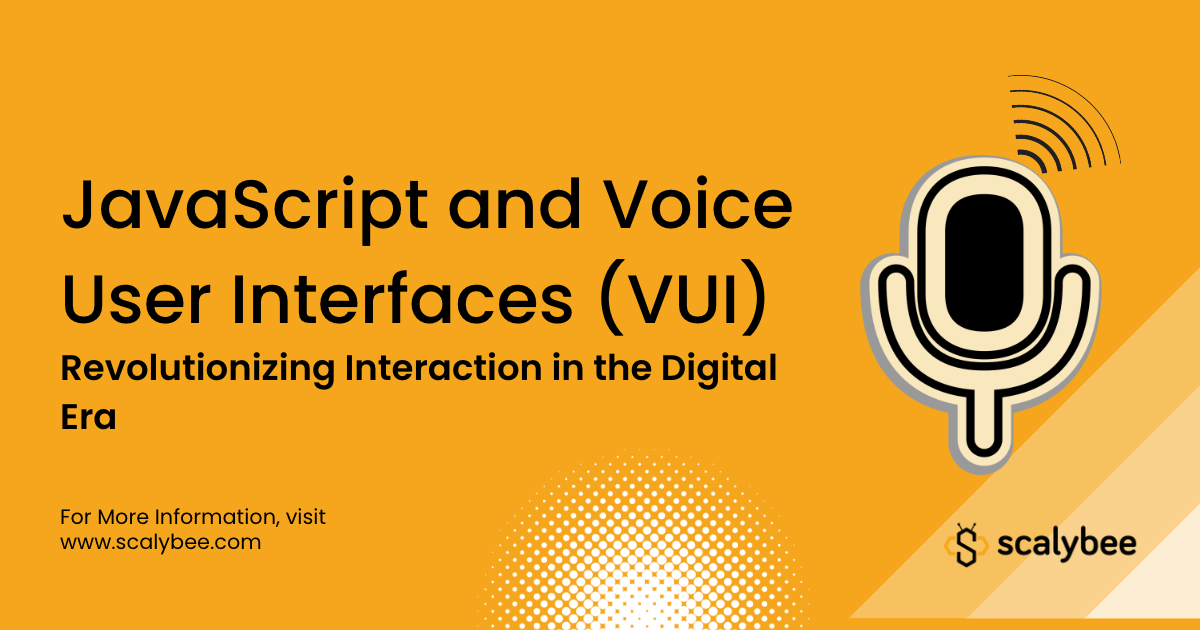In today’s digital world, technology is constantly evolving, and new ways of interacting with devices are emerging. One such exciting development is the integration of JavaScript with Voice User Interfaces (VUI). In this blog post, we will deep dive into the concept of VUI, explore the role of JavaScript in its implementation, and discuss its potential to shape the future of human-computer interaction.
What is VUI?
VUI acts as a Bridge between Humans and Computers, allowing us to communicate using spoken language instead of traditional graphical interfaces like buttons and screens. VUI enables users to interact with devices, applications, and services through voice commands, making the experience more natural, intuitive, and convenient.

JavaScript’s Role in VUI Development
JavaScript, a scripting language used for Web Development has emerged as a crucial tool for creating great VUI Applications. Here are the benefits of using Javascript:-
1) Web Speech API
JavaScript’s Web Speech API empowers developers to leverage speech recognition and synthesis capabilities in web browsers. This API enables VUI Applications to convert spoken words into written text also known as Speech Recognition and written text into spoken words also known as Speech Synthesis.
2) Voice Assistant Integration
JavaScript libraries and Software Development Kits (SDKs) help to integrate VUI Applications with Popular Voice Assistants like Amazon Alexa, Apple’s Siri, Google Assistant etc. These SDKs enable developers to create voice-enabled applications that can interact with virtual assistants, expanding the reach and capabilities of VUI technology.
3) Natural Language Processing
Javascript libraries like Natural and Compromise provide tools for natural language processing, allowing developers to analyze and interpret user inputs. NLP techniques can help extract meaningful information from voice commands and generate appropriate responses.

4) Cross-Platform Development
JavaScript’s versatility ensures Development across various platforms and devices. VUI applications built with JavaScript can be deployed on web browsers, mobile devices, smart speakers, and IoT devices, reaching a wide range of users.
5) The Future of Interaction
To create VUI-powered applications, JavaScript developers often rely on frameworks and libraries specifically designed for voice interactions. One such popular framework is the Amazon Alexa Skills Kit (ASK), which allows developers to build Alexa skills using JavaScript. ASK provides a comprehensive set of tools, documentation, and APIs that enable developers to create custom voice interactions for Alexa-enabled devices. Similarly, Google offers the Actions on Google framework, which allows developers to build applications for the Google Assistant using JavaScript.
With JavaScript and VUI, developers can create a wide range of voice-enabled applications, from simple voice commands to complex conversational experiences. Voice-controlled home automation systems, virtual assistants, and voice-guided navigation are just a few examples of how JavaScript can enhance user interactions. Furthermore, JavaScript’s compatibility with web technologies enables developers to combine voice interactions with other web features, such as real-time updates, multimedia content, and interactive interfaces.
As technology continues to advance, JavaScript and VUI will shape the future of interaction in numerous domains. In the healthcare industry, voice-controlled applications can assist medical professionals in accessing patient information, recording observations, and issuing commands during surgeries. In the education sector, voice-enabled learning platforms can provide personalized and interactive lessons, catering to the individual needs of students. Additionally, voice-controlled smart homes can offer a seamless and intuitive way to control various devices and appliances.
Conclusion
Overall, JavaScript plays a crucial role in VUI development, offering the necessary tools and capabilities to create interactive, user-friendly, and dynamic voice-enabled applications. Its versatility, compatibility, and integration capabilities make it an ideal choice for building the future of interaction through Voice User Interfaces.

